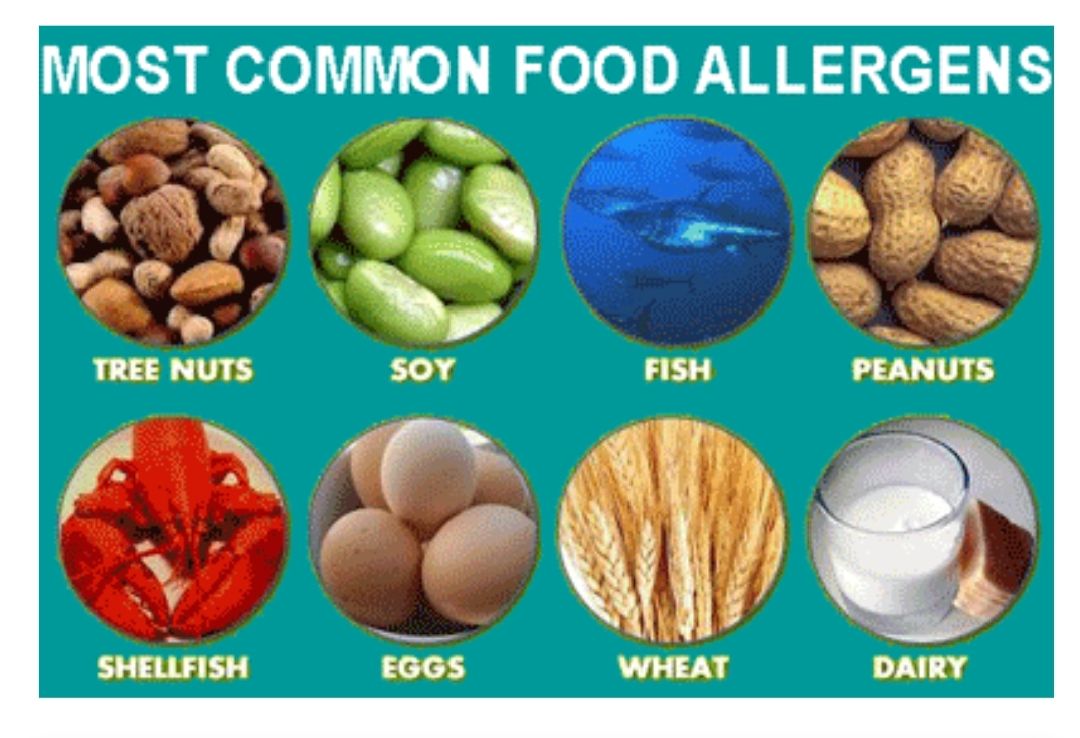Click here to Visit Facebook Page
Food allergies are increasingly prevalent immune system responses to certain foods, with reactions varying from mild discomfort to severe, life-threatening situations. To navigate this complex landscape effectively, it’s crucial to delve into the nuances of food allergies, their various types, symptoms, and strategies for management.
Click here to Visit Facebook Page
Understanding the Spectrum of Food Allergies:
1. Common Culprits:
Certain foods are more notorious for triggering allergic reactions than others. These common allergens include:
° Peanuts
° Tree nuts (such as almonds, walnuts, cashews)
° Milk
° Eggs
° Fish
° Shellfish
° Soy
° Wheat
2. Lesser-Known Allergens:
While the above are prevalent, there’s a spectrum of less common allergens that can also provoke reactions:
° Sesame seeds
° Mustard
° Celery
° Lupin
° Sulphites (commonly found in processed foods and wine)
3. Cross-Reactivity:
Individuals may experience allergic reactions to foods with proteins similar to their primary allergen. For instance:
° Birch pollen allergy sufferers might experience oral allergy syndrome with fruits and vegetables like apples, cherries, carrots, and celery.
° Latex allergy may cross-react with fruits such as bananas, avocados, kiwis, and chestnuts.
Spotting the Signs: Symptoms of Food Allergies:
1. Mild Indications:
Early symptoms of a food allergy may include:
° Itchy mouth or ears
° Hives or rash
° Mild swelling, particularly of the lips, face, or eyes
° Runny or congested nose
° Nausea or vomiting
° Diarrhea or stomach cramps
2. Severe Manifestations (Anaphylaxis):
Anaphylaxis constitutes a severe, potentially life-threatening allergic reaction warranting immediate medical intervention. Key symptoms encompass:
° Difficulty breathing or wheezing
° Swelling of the throat or tongue
° Rapid pulse
° Severe drop in blood pressure
° Loss of consciousness
Click here to Visit Facebook Page
Effective Management Strategies for Food Allergies:
1. Strict Avoidance:
The cornerstone of managing food allergies is complete avoidance of the allergen. This entails diligent label reading, querying ingredients when dining out, and remaining vigilant about cross-contamination risks.
2. Emergency Preparedness:
Individuals must have a comprehensive emergency plan, including carrying an epinephrine auto-injector like an EpiPen, and being adept at its administration when necessary.
3. Education and Sensitization:
Education is pivotal for individuals with food allergies, as well as their caregivers, acquaintances, and colleagues. Enhanced awareness of symptoms, triggers, and appropriate responses fosters a safer environment and ensures prompt intervention in case of an allergic reaction.
4. Exploring Allergen-Free Alternatives:
Thankfully, there’s a burgeoning market of allergen-free alternatives catering to various dietary restrictions. From plant-based milk substitutes to gluten-free grains and nut-free snacks, these options facilitate inclusive eating experiences for individuals with food allergies.
5. Regular Medical Follow-Up:
Consistent medical oversight is paramount for individuals with food allergies to monitor symptoms, evaluate nutritional requirements, and refine management strategies as needed. Regular consultations with healthcare providers facilitate a proactive approach to allergy management.
Conclusion: Navigating the Landscape of Food Allergies
Food allergies represent a significant health challenge affecting millions worldwide. By comprehensively understanding the diverse array of food allergens, recognizing the spectrum of symptoms they elicit, and implementing effective management strategies, individuals can mitigate risks and lead fulfilling lives. Through education, heightened awareness, and access to allergen-free alternatives, individuals with food allergies can confidently navigate daily routines, ensuring their well-being and quality of life remain uncompromised.





